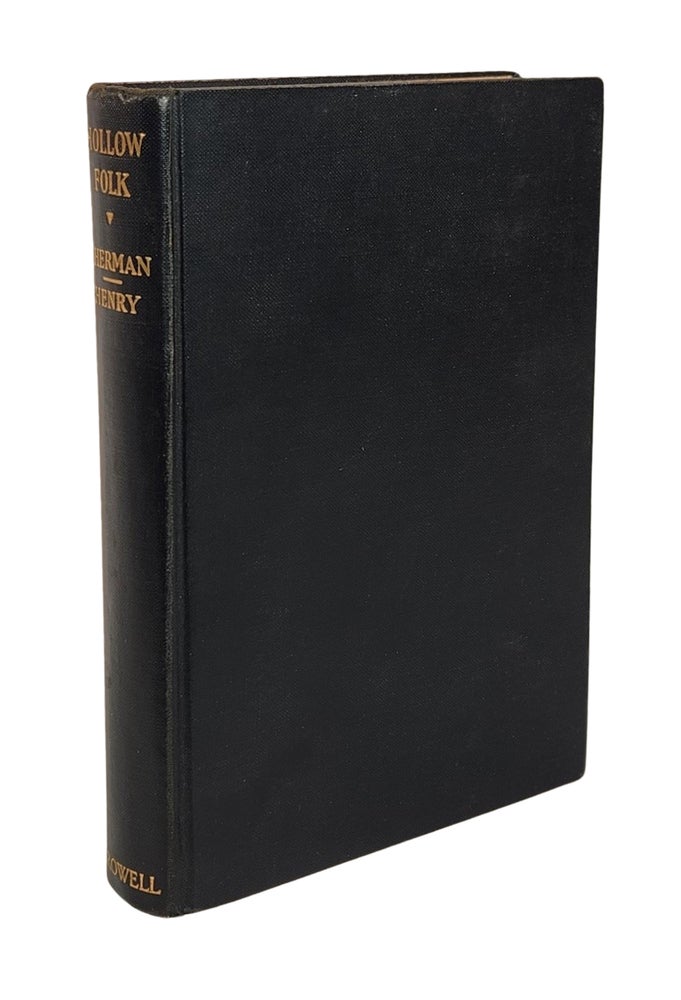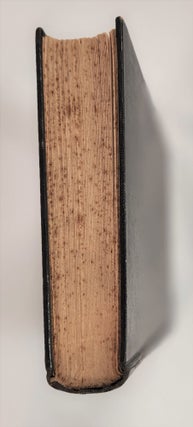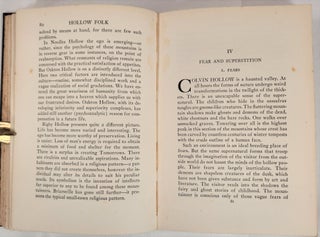Hollow Folk
New York: Thomas Y. Crowell Co., 1933.
First Edition. Hardcover. Very good. 215 pp, in publisher's black cloth binding. No dust jacket. Foxing to edges of text block and occasionally in the margins, minor wear to boards, front hinge slightly wobbly, but still very good. An influential study of five isolated Blue RIdge Mountain communities by a journalist and a University of Chicago sociologist. The tone of the text may be gleaned from the opening of the first chapter: "Here, hidden in deep mountain pockets, dwell familes of unlettered folk, of almost pure Anglo-Saxon stock, sheltered in tiny, mud-plastered log cabins and supported by a primitive agriculture. One of these settlements, Colvin Hollow, has no community government, no organized religion, little social organization wider than that of the family and clan, and only traces of organized indusry. The ragged children, until 1928, had never seen the flag or heard the Lord's Prayer. They speak a peculiar language which retains many Elizabethan expressions." In contrast to the tale of pure isolation and backward living described here, an article found in 2022 on the National Park Service website (Shenandoah National Park now encompasses some of these communities) offers this assessment: "The material record reveals that, contrary to the images promulgated by Thomas Henry and others, Blue Ridge residents did, in fact, wear shoes, cured their sore throats not only with cherry tree bark but with patent medicines, were as likely to purchase bonded liquor as homegrown products, ate their meals off of a variety of imported and domestic ceramics, listened to records on the phonograph, slept in fancy brass beds as well as on cheap metal cots, and served beverages in containers ranging from enameled tinware cups to fancy pressed glass pitchers. In short, the 'hollow folk' of the immediate prepark period owned the same types of goods which are found on archaeological sites of the same era throughout the United States—many no doubt originating from the Sears and Roebuck Company. The material record from the late nineteenth and early twentieth century serves as more than a mere refutation of the Blue Ridge caricature, revealing the choices faced and the choices made by rural people in an industrial age."
Item #22808
Price: $300.00





